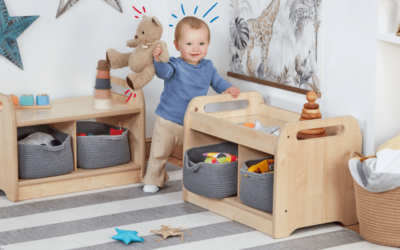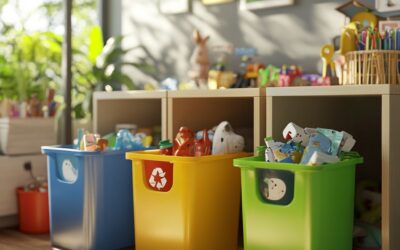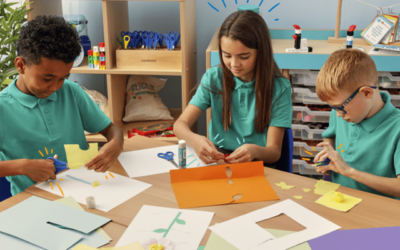Mud Marvellous Mud: The Joy and Learning of Mud Play
Mud pies, digging for worms, and jumping in muddy puddles are fond memories for most of us. A timeless activity, which continues to entice children to this day. So why is it that children are so intrigued by the messy stuff?
Earth and water are the two main ingredients that make up our world and when mixed become a remarkable resource. Children are born with an affinity towards nature. They’re biologically programmed to discover, experiment, and figure out. So, with its infinite opportunity to concoct and make change, it’s no wonder that mud is an obvious choice when it comes to outdoor learning.
Mud play should be a core part of provision for any Early years setting and it is becoming more of the norm with the introduction of mud kitchens. However, there are some who still steer clear of the soil and opt for a more sterile environment.
Concerns around mud
Anyone who works in the Early Years will be no stranger to the myths around mud, from making you sick to ruining your clothes, there are many barriers to break before getting stuck in. But don’t despair there’s method in the mud and it turns out that what children have always instinctively known, happens to be right, playing in mud is good for you and it makes you happy! A fact perhaps worth sharing with all who fear it.
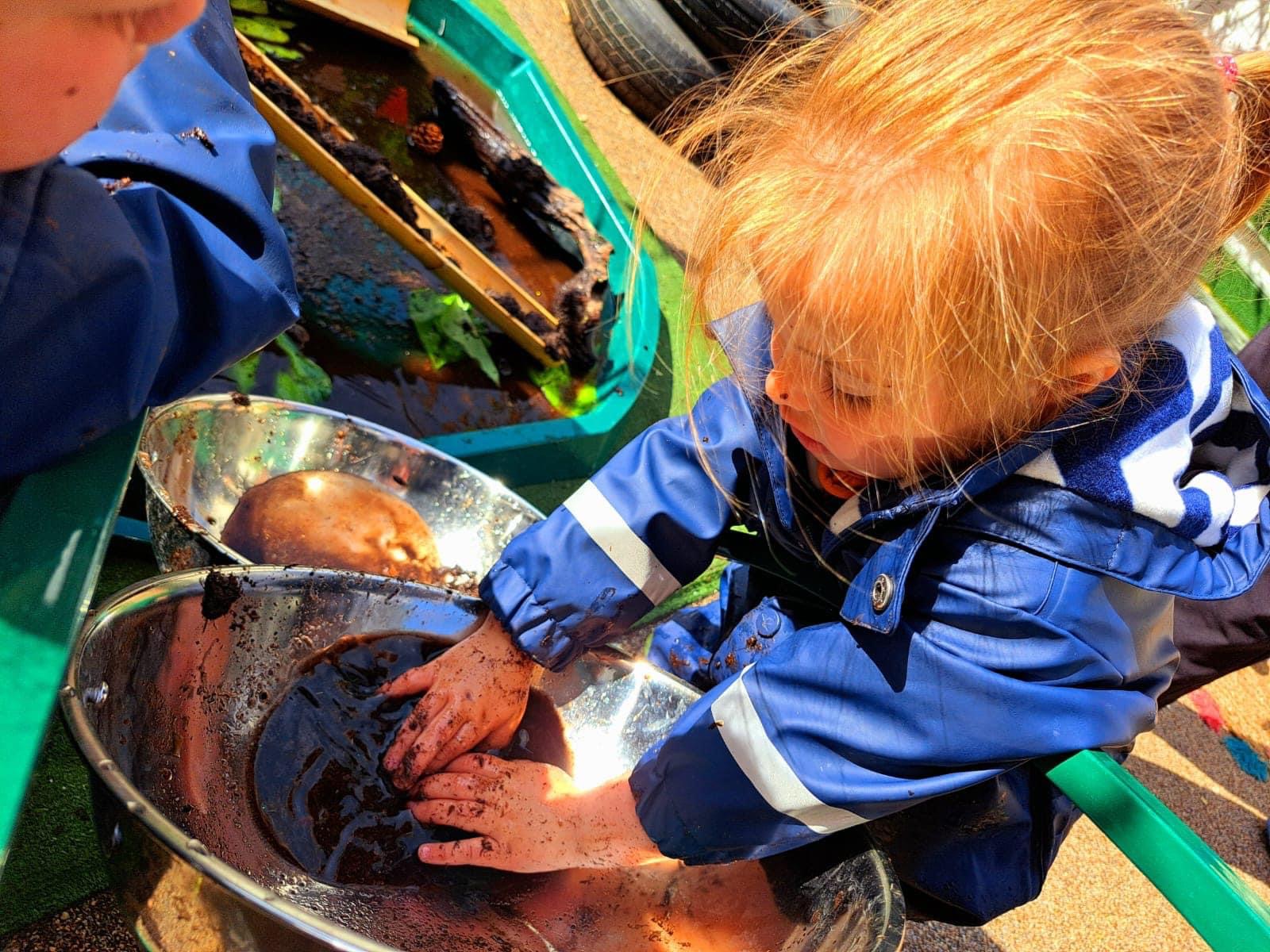
There’s method in the mud
Research shows that rather than making you sick, playing in the dirt boosts immunity and produces serotonin, a happy hormone that calms and relaxes, making the brain ready for learning and boosting cognitive function. The ‘hygiene hypothesis’ explains that contact with the many microorganisms that live in soil trains the immune system to recognise the difference between ‘self’ and ‘not self’, making it less likely to develop allergies. Scientists have even found that regular exposure to these sorts of bacteria may reduce children’s chances of developing depression later in life.
But, playing in mud doesn’t just make children happier and healthier, this wonderful substance is also an incredible component for learning. As we know children discover and develop through their senses, and the rich experience of playing in mud not only engages the whole body, thus waking up the brain and forming new connections, but it also leads to other areas of development such as imagination, social skills, creativity, mathematics, scientific concepts and so much more. Its open-ended nature encourages critical thinking on a whole new level, as children learn about cause and effect and the impact they have on materials.
The other wonderful thing about mud is that it meets children at their level, it moulds to children’s interests and particular needs better than many open-ended resources. Younger children may engage on a sensory level whereas older children may introduce other factors into their mud play, such as cooking resources, sticks, pebbles, and other materials.
Benefits of being barefoot
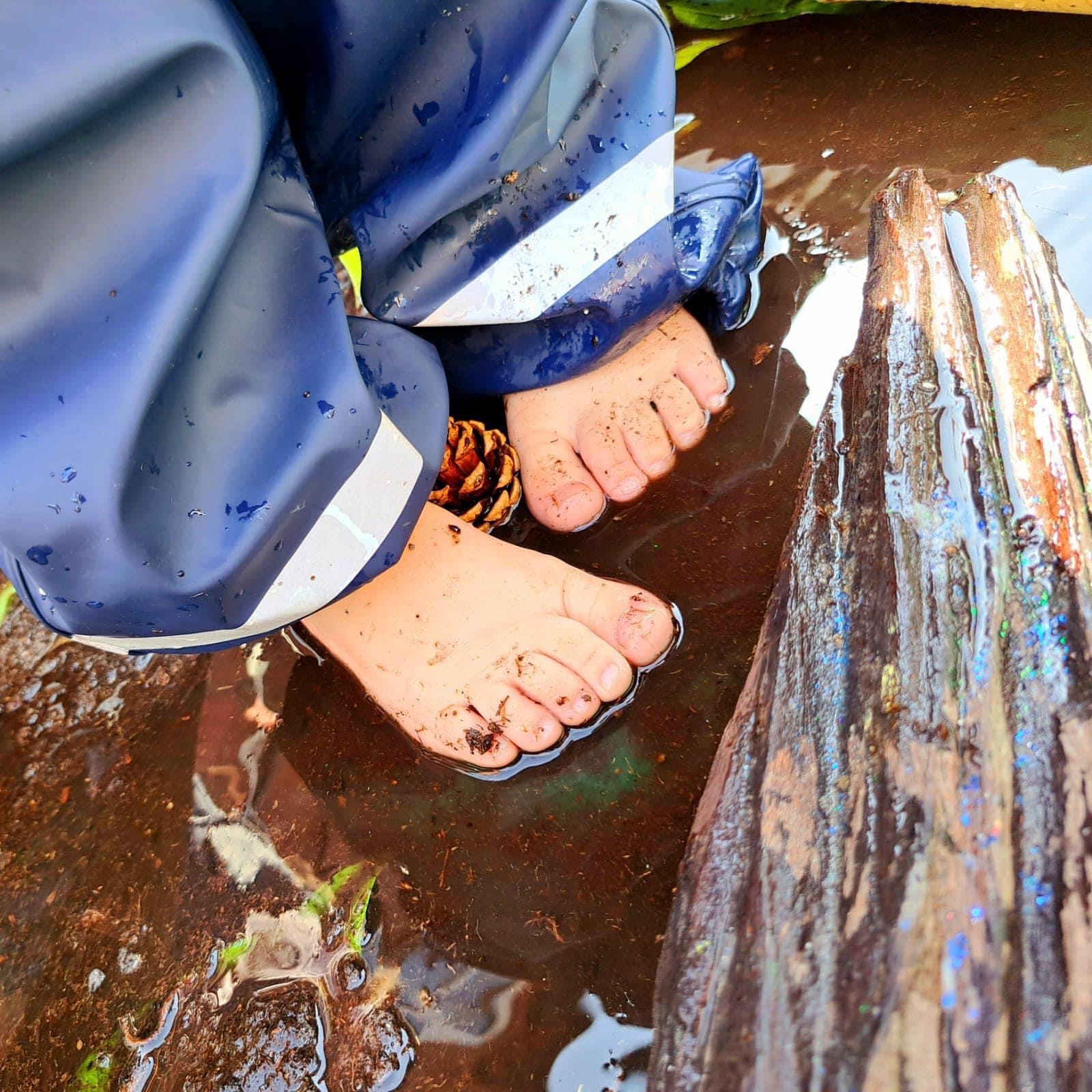
There’s no feeling quite like squelchy mud between your toes! The many nerve endings and pressure points on the bottom of children’s feet send crucial messages to different parts of the body, stimulating the nervous system, and strengthening joints and muscles, all while fostering a deep connection to nature.
So there you have it! The benefits are endless, however, perhaps the greatest of all are the magical memories created. Mud, the stuff of a wonderful childhood and a lifelong connection to the earth.
This article was kindly written by Rhiannon Scott from Kid’s Planet. For more of our articles, take a look at all our posts over on our blog homepage!
Related blogs
Your Guide to the School-Based Nursery Capital Grant
What is the School-Based Nursery Capital Grant? For schools aiming to enhance their nursery facilities, the School-Based Nursery Capital Grant provides a simple funding solution. This grant is open to eligible state-funded primary schools in England that...
What Goes In, Must Go Out
Creating a Circular Economy in Your Nursery Author: Nick Corlett Sustainability Manager at LEYF Sustainability is more than a trend—it’s a shared responsibility, and the nursery is the perfect place to nurture these skills. Every day...
Top tips to create a SEND-Friendly Primary School Classroom
Author Lindsay Robinson Lindsay Robinson has been a primary school teacher for 23 years and is passionate about achieving the very best outcomes for children through quality first teaching and experiences. I remember receiving very little guidance during my teacher...
